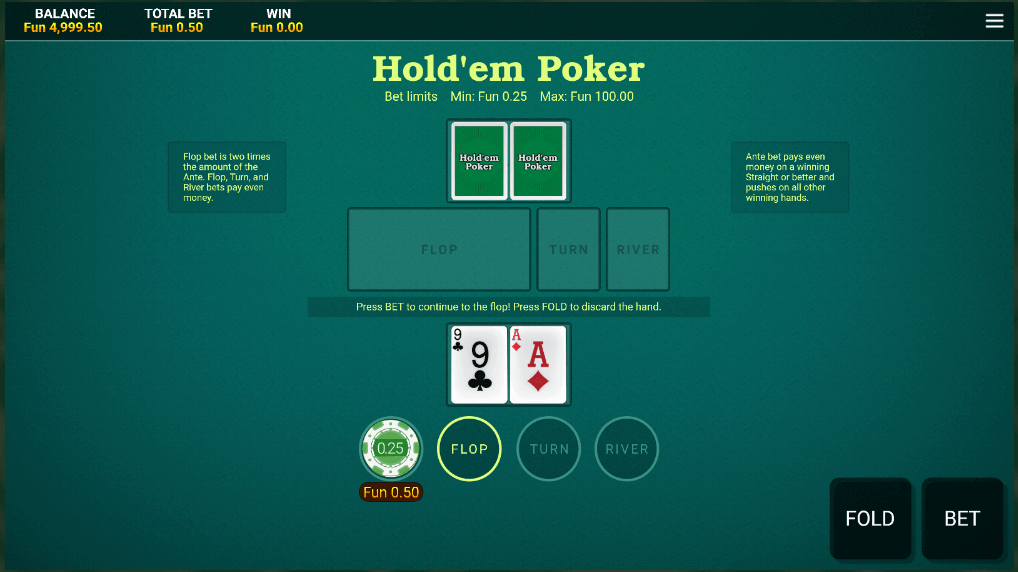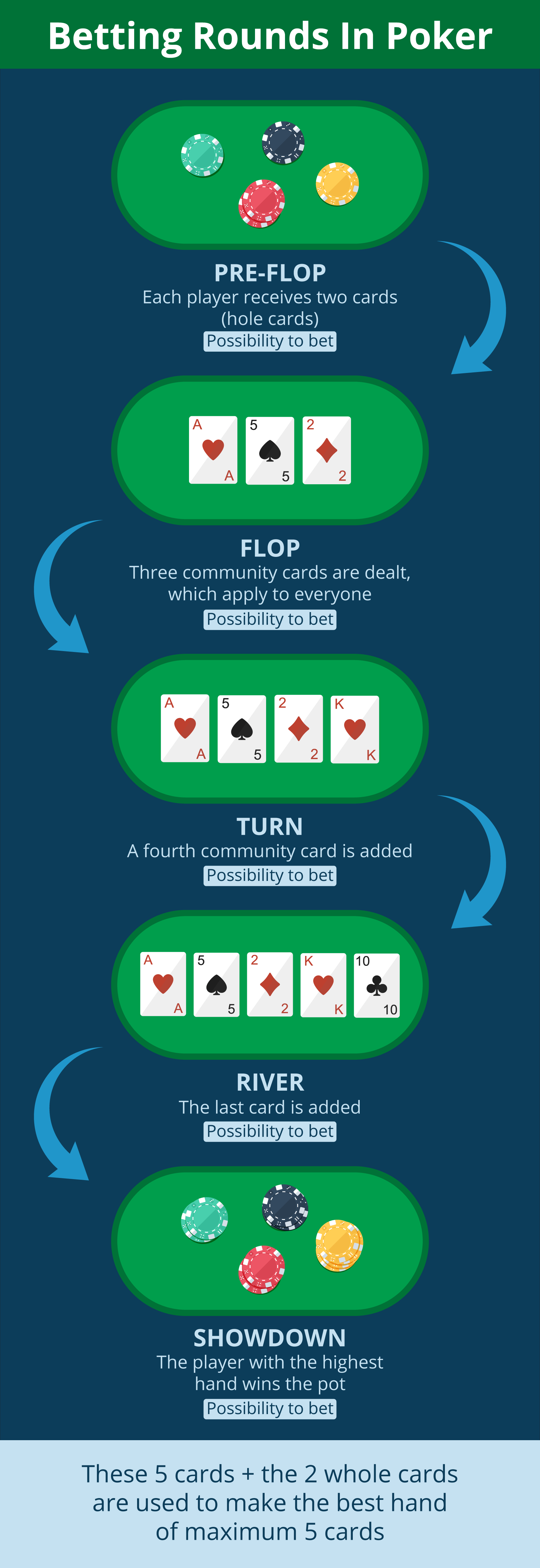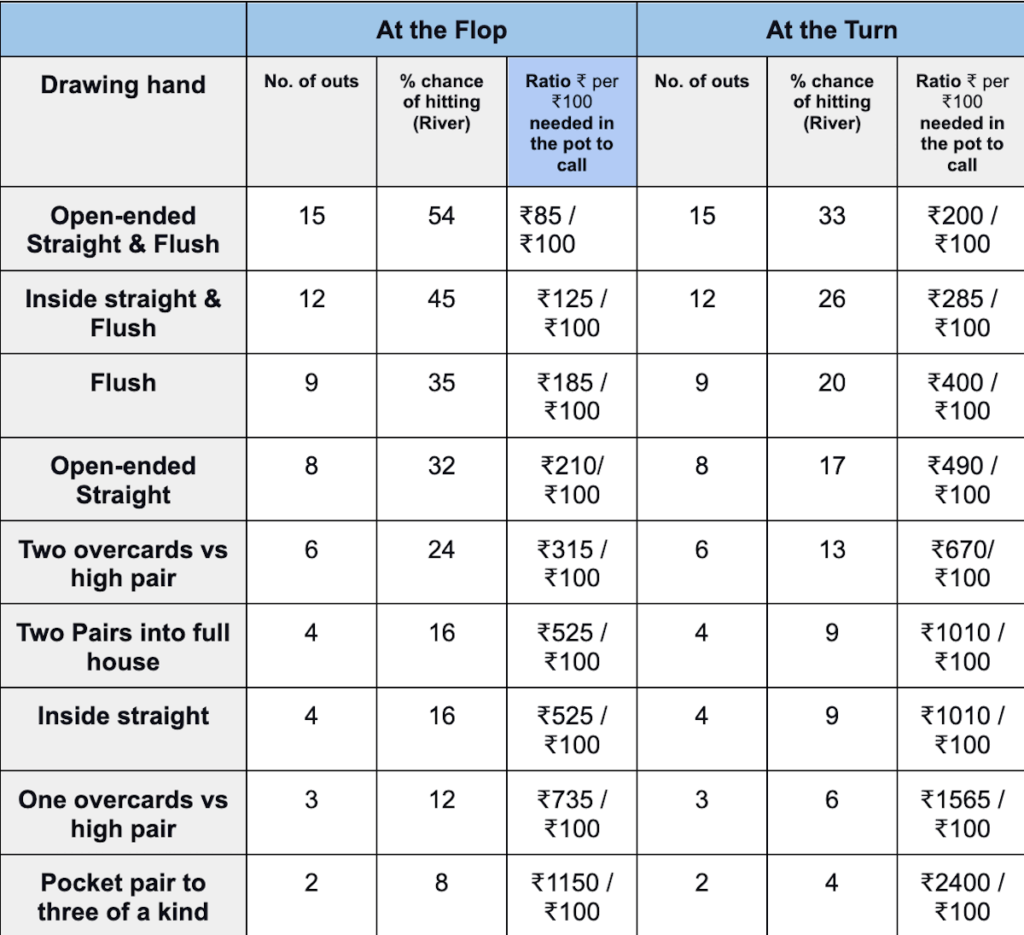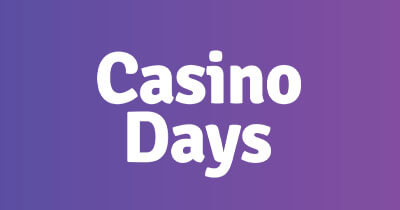Master Poker Rules
You’ll need to understand how the game works if you want to play any game well, and poker is no exception. You can play the game and make decisions without hesitation if you have the rules committed to memory from the get-go. We’ll take you through the basics of the game below.
The Objective

The objective in poker is to build the most valuable hand of cards while not giving away its strength or weakness to your opponents. As the cards are dealt and your hand builds in each round, you’ll place wagers to build the prize pot. The ultimate goal is to win that pot whether you have the strongest hand or not.
Hand Ranking
Every poker hand has a different ranking, with the strongest being the royal flush. As the dealing and betting rounds happen, you’ll need to decide whether to keep building yours and wagering on it or whether to fold and keep your bets for a stronger hand.
Here are the hand values from strongest to weakest:
| Hand | Description |
|---|---|
| Royal Flush | A suited sequence of cards from 10 through to Ace. e.g., 10♥, J♥, Q♥ K♥, A♥ |
| Straight Flush | A suited sequence of cards. e.g., 2♥, 3♥, 4♥, 5♥, 6♥ |
| Four of a kind | Four of any same-value card. e.g., 4♥, 4♠, 4♦, 4♣ |
| Full House | A pair plus three of a kind. e.g., 2♥,2♣, 6♥, 6♣, 6♦ |
| Flush | A suited hand of any cards. e.g., 4♥, 8♠, 9♣, J♠, A♥ |
| Straight | An unsuited sequence of cards. e.g., 4♥, 5♠, 6♣, 7♠, 8♥ |
| Three of a kind | Three cards of the same value. e.g., 7♠, 9♦, 10♥, 10♠, 10♣ |
| Two Pairs | Two pairs of cards. e.g., 8♥, 8♠, 9♣, 9♠, A♥ |
| Pair | Two cards of the same value. e.g., 4♥, 4♠, 9♣, Q♠, K♥ |
| High card | One high-ranking card – Ace is the highest. e.g., 5♦, 7♠, 10♣, Q♠, A♥ |
Pre-Flop, Flop, Turn, River, Showdown
Turn, Flop and River are terms used to describe the three rounds of dealing and betting on the five community cards. These cards are shared by the players and used to build their hands by adding them to their two secret hole cards dealt at the beginning of the hand.
- Pre-Flop – All the players receive 2 hole cards
- Flop – These are the first three community cards dealt face-up in the centre of the table.
- Turn – The next card dealt to the community cards on the table, also referred to as the fourth street.
- River – The fifth and final card added to the community cards, also known as the fifth street.
- Showdown – Player with the highest hand is declared a winner

Dealer Button
The dealer button indicates which player is currently performing the role of dealer for the hand. If you are playing at a casino, the dealer button is placed with the player who acts last in the hand and who would have been the dealer if you were playing a home game.
Big and Small Blinds
The small blind is the first bet to be made at the table and is placed by the player to the dealer’s left. The big blind then follows, placed by the player to the left of the small blind. The small blind is usually half of the minimum wager at the table, and the big blind is the minimum bet.
After these two bets, the rest of the table place their bets in order, coming back around to the big blind, who then has the opportunity to raise, known as the live blind. If he checks, the round of betting ends and the game moves on to the flop.
No Limit, Pot Limit and Limit – Explained
No limit, pot limit and limit poker are all versions of the game that you might come across in a casino. In a no-limit game, the bet size is unlimited, and you can bet your entire stack on a single hand if you want to.
In a pot-limit game, bet sizes are limited to the size of the pot at the time. Limit poker restricts the size of the bets that you can make.
Rule Variations
While the game’s basic premise stays mostly intact, poker comes in a wide variety of variants for you to choose from. These all fall into three categories: draw poker, stud poker and community card poker. Each has subtle changes to the rules which you may or may not enjoy. You can try each out to get a feel for the best for you. Some interesting rules variations include:
- Added Wildcards – Some rules allow for jokers to be added or make low cards like deuces wilds.
- Lowball – This rule variation awards the win to the lowest scoring hand, not the highest.
- Hi-Lo Split – The highest and lowest hands split the pot for the win.
- Twist Round – Some rule variations offer players the chance to buy another card from the deck.
Types of Bets in Poker
There are a few types of bets that you can place in a poker game. These take place in each dealing round and are placed as you see your hand building. It’s during these betting rounds that you’d introduce your poker strategy, playing either a tight, loose, passive or aggressive game to achieve the result you want.
Your decision whether to bet or not in poker is determined by a few factors like the cards dealt, your playing strategy and whether or not you think the other players have better hands. You have four options during each round of betting; each comes with its pros and cons.
Call
A call bet matches the bet placed by the players before you and will take you through to the next round of dealing. If a player after you decides to raise the bet, the betting will come back around to you, and you’ll have to decide whether to call again. This will continue until all of the players at the table have placed the same amount into the pot.
Raise
If you’re very confident that you have a good hand, or if you want to make it seem like you are, you can choose to raise the bet higher than what it was before. The players after you will either call or raise, and the round will continue until everyone has matched the bet.
Fold
If your cards don’t present you with a winning opportunity and you don’t want to bluff your way through, you can choose to fold and wait until the next hand is dealt. You will lose any previous bets placed in the pot for the hand.
All in
In a bold show of confidence in your cards, you can choose to go all in and bet your entire stack on the hand. Going all in entitles you to win the amount you bet multiplied by the number of players that called or matched that bet.
Poker Odds and Payouts
Your odds of winning in poker are very much determined by your decisions and knowledge of the game. Knowing when to stay in the game and draw another card is an important skill that requires understanding when the potential reward is big enough to mitigate the risk.
You’ll need to measure the two secret cards you’ve been dealt against the community cards to determine your odds of making a hand. Below is a table of Common drawing situations:

House Edge in Poker
The house will always have the edge in any casino game; it’s how casinos make their money. The house edge is a small mathematical advantage the casino has over the players that guarantee its profits. Poker has one of the lowest house edges of any game at around 0.46% for video poker and 2.36% for Texas Hold ’em.
How to Play Poker – Breakdown of a Round
Once you have the gist of the game, you can have a go at playing a hand and see how you get on. While some variations might run slightly differently, most follow the following order:
- Each player places their buy-in or ante to join the game.
- The small blind is posted, followed by the big blind.
- The dealer deals two hole cards for everyone – these are kept secret. This step is known as the pre-flop.
- Each player then either calls by matching the amount or raises.
- Once each player has bet the same amount, the flop is dealt.
- Players use the flop cards on the table and their hole cards to build a hand and determine whether to raise, call or fold.
- Once the round of betting is complete, the turn is dealt.
- Another round of betting takes place.
- The river card is dealt.
- Players now make their final betting decisions. The winning hand is revealed once betting is complete, and the winner is paid out.
Conclusion – Play for Free, Before You Play Poker for Real Money
Poker is easy to learn and difficult to master. However, most online casinos let you play demo Poker for free without signing up. You can take advantage of this feature and practice poker for free at top-rated casinos. Once you clear the basics and gain confidence, you can take a seat at the Poker table.





